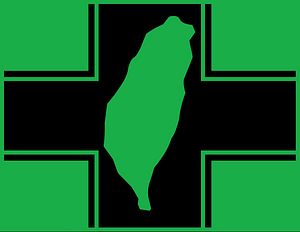After a series of political crises on Taiwan, from the occupation of the Legislative Yuan to ongoing protests over nuclear power plants, the majority Chinese Nationalist Party (KMT) is facing historically low approval ratings. Public discontent with President Ma Ying-jeou (also the Chairman of the KMT) provides an opportunity for the opposition Democratic Progressive Party (DPP) in the municipal elections this fall — and, should the current trends continue, in the legislative and presidential elections of early 2016.
This is an unsettling possibility in Beijing, where leaders have grown accustomed to working almost exclusively with the KMT. In the absence of official government-to-government ties, cross-strait relations are heavily dependent on party-to-party talks between the Chinese Communist Party (CCP) and the KMT. The two parties have formed a good working relationship — and that, according to recent analysis by Andre Beckershoff, excludes all other stakeholders from the decision-making process.
On the other hand, the last (and only) DPP President, Chen Shui-bian, was criticized by Beijing for pushing for Taiwanese independence. Provocative moves such as calling for a referendum on whether Taiwan should apply for its own UN seat only strengthened these perceptions. During Chen’s time in office, both the CCP and the KMT benefited from boosting their exchanges, including a high-profile visit to Beijing by then-KMT Chairman Lien Chan, who had also been the unsuccessful KMT presidential candidate in 2000 and 2004.
Current President Ma Ying-jeou based his campaign in 2008 in part on promises to repair cross-strait ties; his re-election in 2012 was taken by many as a sign of approval for his cross-strait policies. The CCP’s Taiwan Affairs Office (TAO) certainly subscribed to this view. In a statement, TAO said that Ma’s re-election proved that “the peaceful development of cross-strait ties” is “the correct path that has won the support of the majority of the Taiwanese compatriots.”
In fact, the KMT’s China policies do have popular support. According to Taipei Times, a DPP survey conducted earlier this year found that 45.7 percent of respondents supported the KMT’s attitude toward cross-strait exchanges, compared to 35.2 percent who supported the DPP approach. In response, DPP Chairman Su Tseng-chang attempted to refute the notion that the party is against any form of increased engagement with China. Still, the image of the DPP as “anti-China” persists.
The KMT has taken on the mantle of the guardian of cross-strait relations, and the electoral success of the KMT has made it easy for China to offer high-level interactions almost exclusively to the KMT. This special treatment is a ‘reward’ for the KMT and Ma’s willingness to work within the “one China policy” outlined in the 1992 consensus. For the past eight years, there’s been little need for China to work to establish ties with the opposition party — but what if the DPP takes the presidency in 2016?
The DPP has been making its own preparations by tweaking its China strategy. The DPP’s China Affairs Committee released a 2014 China Policy Review in January. The report called for the DPP to “proactively and confidently participate [in the cross-Strait dialogue].” DPP think tanks and local governments were encouraged “to engage with their counterparts on the other side of the Strait.” The review also said “cross-strait economic interactions should continue on the basis of the existing foundation” — a noteworthy comment from the party that resisted Ma’s signature Economic Cooperation Framework Agreement. The policy also advocated for “a hospitable environment” to “Chinese spouses, Chinese students, and Chinese visitors” in Taiwan to increase people-to-people exchanges.
In an interview with The Diplomat, Joseph Wu, the DPP’s Representative to the U.S., pointed to a number of exchanges between the DPP and mainland China. “The most important thing for us during this period of time is to allow the exchange to take place so that China can understand more about the DPP, so that we can understand more about China,” Wu said. He called the discussions between DPP and mainland scholars “very meaningful, very substantive.”
However, the DPP’s China policy review did not make substantial changes to the 1999 “Resolutions Regarding Taiwan’s Future,” which contains provisions wholly unacceptable to Beijing. The document proclaims that “Taiwan is a sovereign and independent country” and that “Taiwan should renounce the ‘One China’ position.” Beijing’s bottom line on Taiwan has always been to insist upon recognition of the “one China” policy, something the DPP is not prepared to do.
Without agreeing to the 1992 consensus (in effect, the “one China policy,” with deliberate ambiguity as to what “China” means), it seems unlikely that the DPP can ever enjoy the sort of relationship with Beijing than the KMT has — including personal meetings between retired KMT officials and Presidents Hu Jintao and Xi Jinping. For its part, the DPP doesn’t seem particularly bothered by a lack of top-level engagement. “If we raise exchanges to that high level without thinking of the substantive [issues], it’s not going to be in Taiwan’s interest,” Wu said.
The real question is whether Beijing would be willing to work with a DPP government through lower-level engagement, including keeping the current strong economic relationship going. In other words, would Beijing try to punish the DPP (economically or otherwise) for its refusal to embrace the “one China” policy? Or would the CCP decide that keeping cross-strait relations on an even keel, regardless of the party in power, is more important?
Given that China’s ultimate goal has always been reunification, I’m inclined to say that Beijing would rather stonewall the DPP and hope to force a quick regime change back to the KMT. Beijing likely fears the slippery slope of even tacitly accepting the DPP’s stance on the “one China” policy. But the political ramifications of such blatant favoritism might well work against China’s stated aim of “winning the hearts and minds” of Taiwan’s people.

































